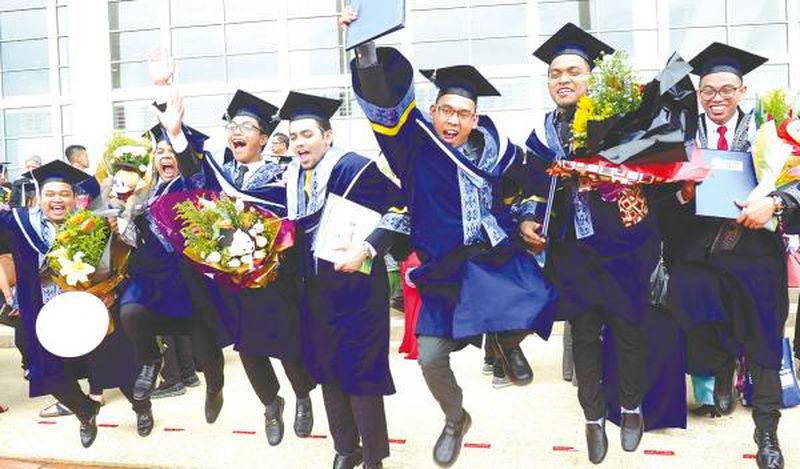A HIGH percentage of SPM leavers have opted for the gig economy, finding that SPM is sufficient for a gig career that offers a decent income.
With no organisational rules, no bosses to answer to and no subordinates to manage, it is not surprising that many young people are choosing to skip three or four years of university.
Moreover, a diploma does not always guarantee a good job, which explains why many young SPM leavers are turning to delivering food instead. They appreciate the flexibility to quit at any time without advance notice. However, there are concerns about the impact on the country. One thing is certain, the talent pool crucial for national development is shrinking, and we are already witnessing a brain drain as skilled individuals leave. What do we do?
The declining interest in higher education is influenced by various social, economic and cultural factors. To address this trend, we need to understand and tackle the root causes. There are several strategies that institutions and policymakers can consider.
We need to improve the value proposition of higher education by ensuring its relevance to the job market. This involves aligning curricula with current and future job market needs. One approach is to form partnerships with industries to develop programmes that equip students with the skills employers are seeking.
We should enhance career services to better assist students in securing internships, co-op programmes and job placements as few universities currently offer this support. Many recommend incorporating more hands-on learning opportunities such as internships, practicums and project-based learning.
Making education more accessible and affordable is crucial. The government should enhance financial support, scholarships and grants to alleviate the financial burden on students and their families as student loans alone are not the answer.
Explore alternative tuition models such as income-share agreements, where students pay a percentage of their income post-graduation.
Promote community colleges as a cost-effective starting point and support the expansion of quality online education programmes. We need to adapt to the changing student demographics.
One suggestion is to develop programmes and support systems for non-traditional students, including working adults, part-time students and parents.
Flexible learning options, such as weekend classes, and online or hybrid courses to accommodate diverse schedules should be considered.
Also consider enhancing student support services such as childcare, mental health services and academic advising. Improving educational outcomes is critical. Investing in faculty professional development to boost teaching quality has been recommended.
Implementing mentorship programmes can assist students in navigating their academic journeys. Early intervention strategies should be employed to support students at risk of dropping out.
Additionally, we must acknowledge the shifting perceptions of higher education, which are trending downward, and intensify public awareness campaigns to address this issue. Campaigns should highlight the long-term benefits, such as increased earning potential and personal development.
Share graduates’ success stories to highlight the positive impact of higher education on individuals and society. It is also essential to promote the concept of lifelong learning to adapt to the fast-changing job market.
Stackable credentials will allow students to gain specific skills without committing to a full degree programme.
Expand experiential learning opportunities by offering more study abroad programmes, research projects and service-learning initiatives. Strengthen relationships with employers to ensure that programmes align with industry needs and provide students with clear pathways to employment.
Develop apprenticeship and co-op programmes that combine classroom learning with on-the-job training. Advocate for policies that support higher education funding, student loan reforms and initiatives that promote higher education access and completion. Use data to identify trends and make informed decisions about programme offerings and student support services.
Addressing the declining interest in higher education requires a comprehensive approach that involves rethinking traditional models, enhancing the value proposition, improving accessibility and affordability and better aligning educational outcomes with market needs.
By implementing these strategies, institutions can better attract and retain students, ensuring that higher education remains a viable and appealing option for future generations.
The writer is an associate fellow at the Ungku Aziz Centre for Development Studies, Universiti Malaya.
Comments: letters@thesundaily.com









